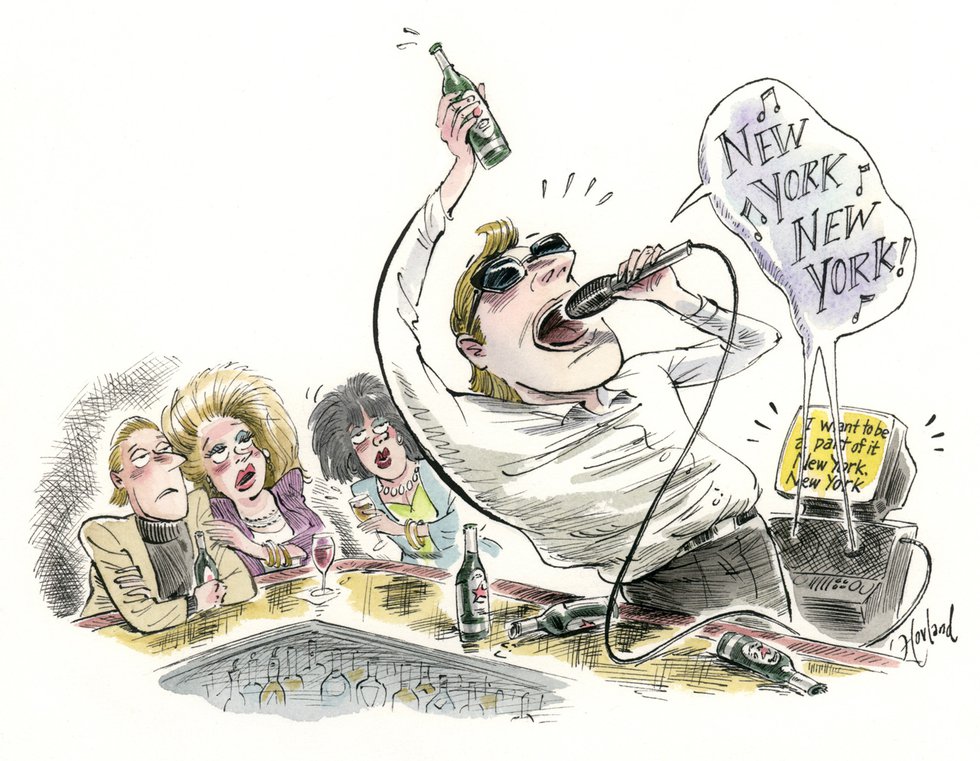Requiring steely skillfulness and athleticism, the ancient Irish sport of hurling is gaining a foothold in Virginia.

The Irish sport of hurling is the oldest, fastest and most aggressive team sport that you’ve likely never heard of.
The earliest known reference to hurling is found in an account of the 1272 B.C. Battle of Moytura, in which the two armies played a stick-and-ball sport against each other before going into battle. Now, a full 3,289 years after that first mention, hurling is finally taking root in Virginia, with club teams established in both Richmond and Hampton Roads, and a 20-team mid-Atlantic tournament being held in mid-July in Virginia Beach.
“I love the physicality of hurling. It’s a stress reliever,” says Niall Duffy, the 44-year-old head coach of the Richmond Battery hurling team, part of the mid-Atlantic division of the U.S. Gaelic Athletic Association (GAA). Duffy is soft-spoken but confident, originally from Galway, on the west coast of Ireland, and is the owner of Two and a Half Irish Men baking company in Richmond.




“When I was growing up, we’d play after school, and you’d do so much running that you’d have no time to stress about anything else,” he says. “And you were more worried about fixing your fingers anyway. Same now, after a long day at work.”
Ah, the fingers. If you’re playing it properly, hurling poses a menace to the fingers. Force lacrosse, hockey, baseball, soccer and rugby into a blender, and then crank the blades to maximum and hurling might be the result. Played between two teams of 15 players on a large grass field, the aim of the game is to move the “sliotar” (pronounced “sh-litter,” with a gently rolled “r”) down the field and into the opposing goal for three points or, next best, over the goal for a single point. Players carry “hurleys,” axe-like wooden sticks, which are used to strike and to juggle the sliotar and to tackle opponents. Players can also grab the sliotar out of the air and either punch or kick it to move it forward, resulting in non-stop action that rewards quick thinking and innovation as much as it does quick feet and physical intimidation.
In Ireland, hurling is organized by the Gaelic Athletic Association. The association was formed in 1884, while Ireland was still under British rule, to preserve and promote Ireland’s rapidly disappearing sporting and cultural heritage. It became both a repository and champion of Irish culture. “I want to say the GAA is like the NFL, but it’s a bit more than that,” says Duffy. “The GAA is intrinsically linked with being Irish. Every aspect of Irish life has the GAA attached to it — but in a good way, because there’s no corruption, no money involved.”




Top-level Irish hurlers are genuine national celebrities, but they also have day jobs because the sport is a completely amateur enterprise. You can play for the village, town or city in which you were born and, at the highest level, you can represent your county in the All-Ireland Senior Hurling Championship. But you never sign a contract, get paid or get traded. You just practice hard, play in a nationally televised game at the weekend and then go back to your day job on Monday. “It’s all done for non-profit,” says Duffy. “Any money made by the game goes back to developing the game, making new fields and organizing the sport.”
Duffy moved to Richmond in 2014 and the Richmond Battery GAA team was formed that same year (Duffy didn’t join until later on). Duffy’s friend and teammate, Patrick Moran, 47, a Richmond attorney who is originally from upstate New York, was among the earliest Battery members and is now the club chairman. The team has 48 members and approximately 36 regular players, aged 16 to 63. The majority of the Richmond hurlers are Americans.
“Every American picks it up like a baseball bat,” says Moran. “But the grip is reversed and the swing is more of a snap, like a golf swing.” Still, Moran says, the barrier to entry is low and the basics can be learned quickly. “I started this just over two years ago and I was crap. But just being able to hit the ball once … it’s something so cathartic that, if it’s in your blood, you’ll take to it.”
Virginia’s first hurling team, Coastal Virginia GAA, based in Hampton Roads, was founded in 2009 and today has 85 members. The club will host the third annual Coastal Virginia Cup July 22 at the Princess Anne Athletic Complex in Virginia Beach. Heather Warren, 33, is the Coastal Virginia Cup chair and organizer. This year, she’s expecting 12 teams from the mid-Atlantic region, from as far north as Ohio and as far south as Georgia, along with eight camogie teams. (Camogie is an almost identical sport played exclusively by women.)
Thanks to the work of Warren and her cohorts, hurling is gaining traction in Virginia and the Commonwealth is establishing itself as an important part of the greater GAA community. “We’re hosting the USGAA national meeting in November or December,” she says, “and we’re also trying to get the USGAA playoffs, which would bring 50,000 players and fans to Virginia Beach.”
Both Richmond Battery GAA and Coastal Virginia GAA will take part in the 2017 Coastal Virginia Cup. The one-day event is free and open to the public. Warren is expecting a fiercely competitive tournament, followed by hugs and handshakes over more than a drink or two. “We will beat each other up on the pitch,” she says. “But then we’re going to go have pints and be best friends afterward.”
This article originally appeared in our August 2017 issue. For more information about the mid-Atlantic Division of the U.S. GAA, go to MidAtlanticGAA.org. Details about the Coastal Virginia Cup and Richmond Battery club may also be found on Facebook.









